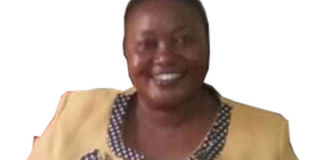Age limit case: NRM is ready for court outcome

Milly B Babalanda
What you need to know:
- Thirty two years later, we stand at a pedestal to observe how the judicial arm of the State mediates constitutional and legislative decisions and political projections.
- While issues being presented in the court now sitting in Mbale before a bench led by Deputy Chief Justice Alfonse Owiny-Dollo, cannot be commented on, the conduct and preparedness of the contending sides is of great interest.
- Internally, we are steps ahead in working out ways to implement recommendations of the Supreme Court ruling of 2016 in respect of the Amama Mbabazi challenge to President Museveni’s poll victory.
- Some of them were already in our file because our interest is to have a foolproof electoral arrangement in place at all levels. It may take time to achieve that but it’s possible.
Uganda’s democratic credentials continue to grow. After three decades of extending the frontiers of democracy and human rights through expanding participatory space and representation for the people, the government is now in a phase of ensuring quality representation and deepening checks and balances. These things were not there before President Museveni ushered in a fundamental change in 1986.
Thirty two years later, we stand at a pedestal to observe how the judicial arm of the State mediates constitutional and legislative decisions and political projections.
Opponents of last year’s constitutional amendments (featuring mainly “age limit” removal under Article 102(b)) effected through Parliament in a broad process as by law established are now in contention to challenge them. This is a good move. As NRM works to mature all systems to score high on the compliance card with best practices, these are the moves we encourage. Any dispute arising out of political, and other contests, can and should be brought before the courts of law for arbitration. No need to emphasize this!
Therefore, it was befuddling and unacceptable seeing some MPs conducting themselves unparliamentarily in the August House, resulting in a physical showdown during the process of tabling, debating and subsequently voting on the Bill.
In strengthening democracy, the behaviour of individual players is as vital as the rules and laws applicable. We all look forward to a transition but it should have capable receivers to carry forward the gains and ameliorate any mistakes. Do we really have such people in the line-up or we are nurturing the power hungry posing as nationalists? If we do not whip ourselves into civilised competition, there is trouble ahead.
While issues being presented in the court now sitting in Mbale before a bench led by Deputy Chief Justice Alfonse Owiny-Dollo, cannot be commented on, the conduct and preparedness of the contending sides is of great interest. The matter will prevail or die in the hands of these two sides-petitioners and respondents. Court is a sacred place which must be respected at all times. Anyone intending to appear there ought to prepare well in advance both for propriety in the temple of justice, saving time and tackling issues roundly for the bench to be adequately furnished with a basis for their decisions.
It was telling on the very first day when nine petitions were struck off the record for lack of pursuance, and absence of evidence or petitioners, or their representatives, in court. Here, there was a bit of unseriousness. The remaining counsels, among who featured Kampala Lord Mayor Erias Lukwago, Ladislaus Rwakafuuzi, Wandera Ogalo, Male Mabirizi surely felt overwhelmed by the task of aiding the service of justice in such a matter of great national importance. It’s not numbers but the weight of the arguments with appropriate references to the law that will determine the outcome.
As NRM, we are prepared for any outcome from the court process and will abide by its pronouncements (as always).
Internally, we are steps ahead in working out ways to implement recommendations of the Supreme Court ruling of 2016 in respect of the Amama Mbabazi challenge to President Museveni’s poll victory. Some of them were already in our file because our interest is to have a foolproof electoral arrangement in place at all levels. It may take time to achieve that but it’s possible.




